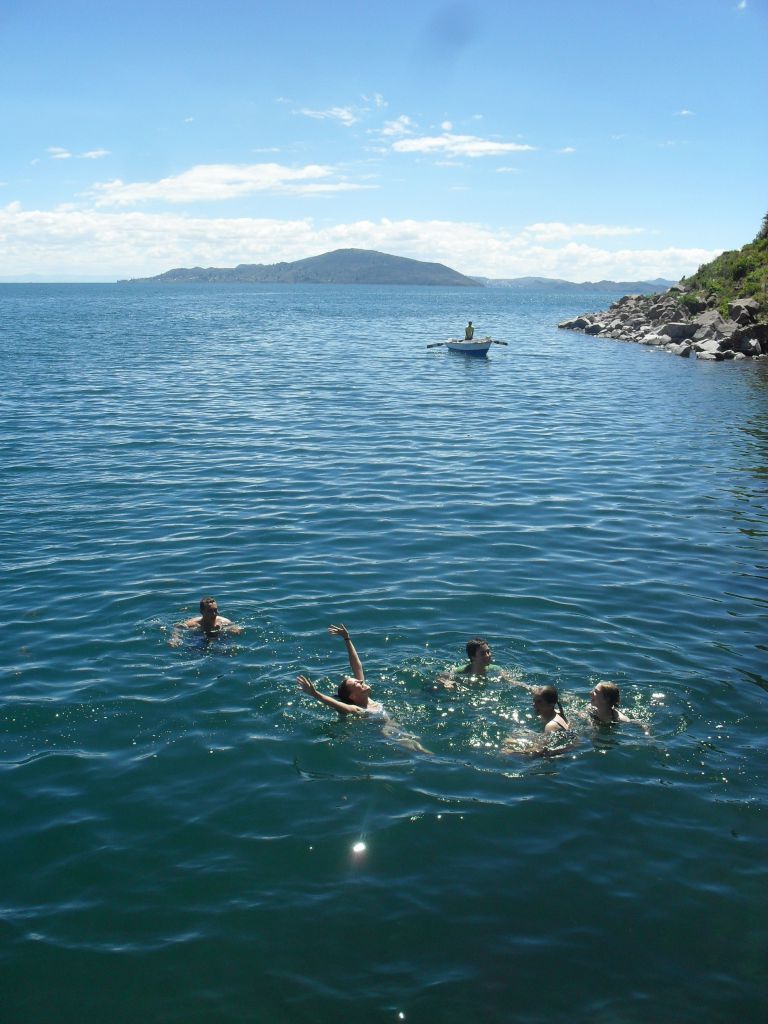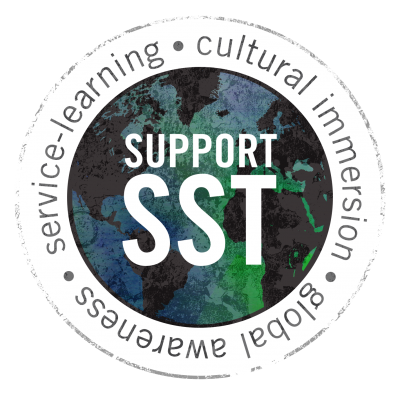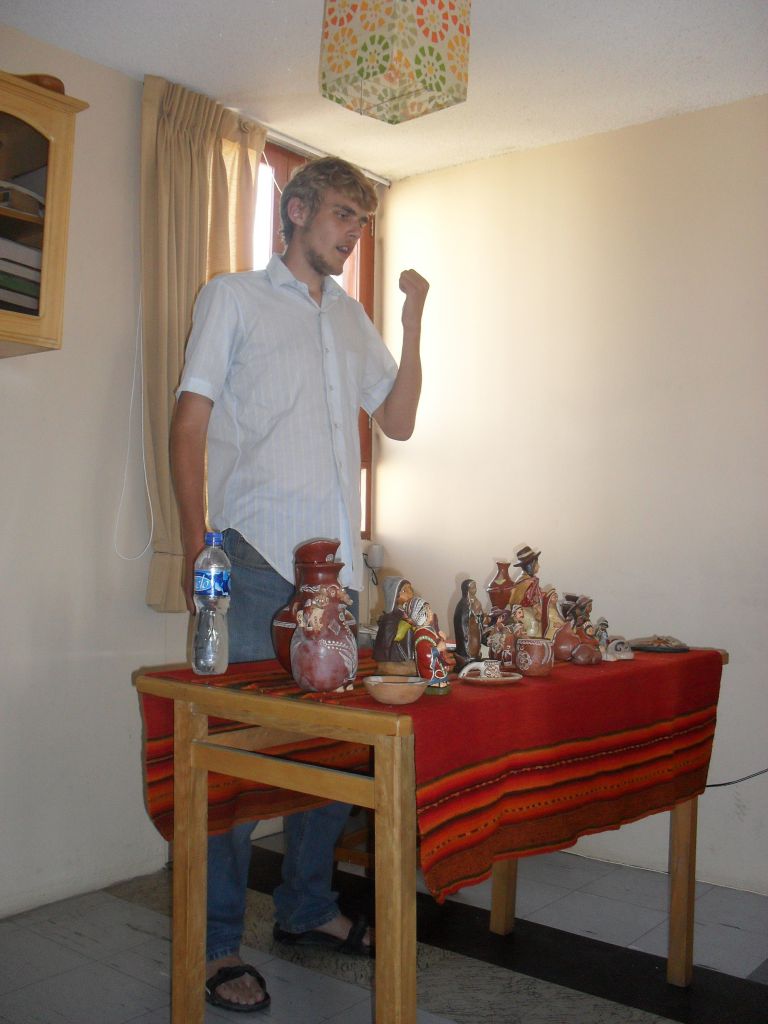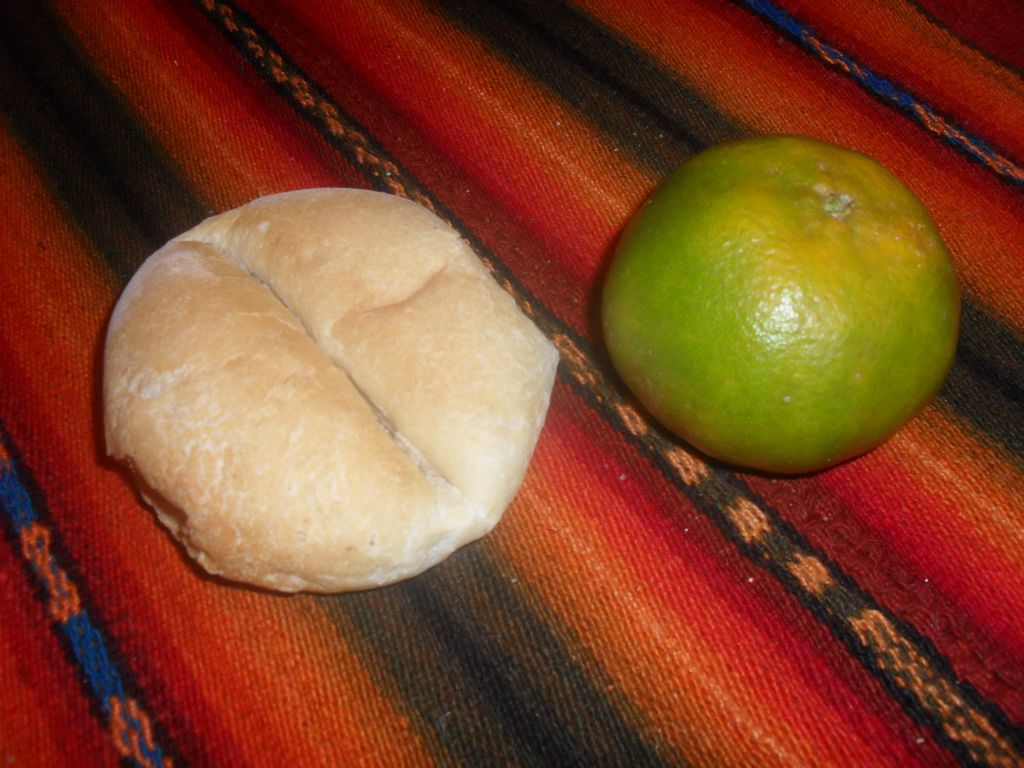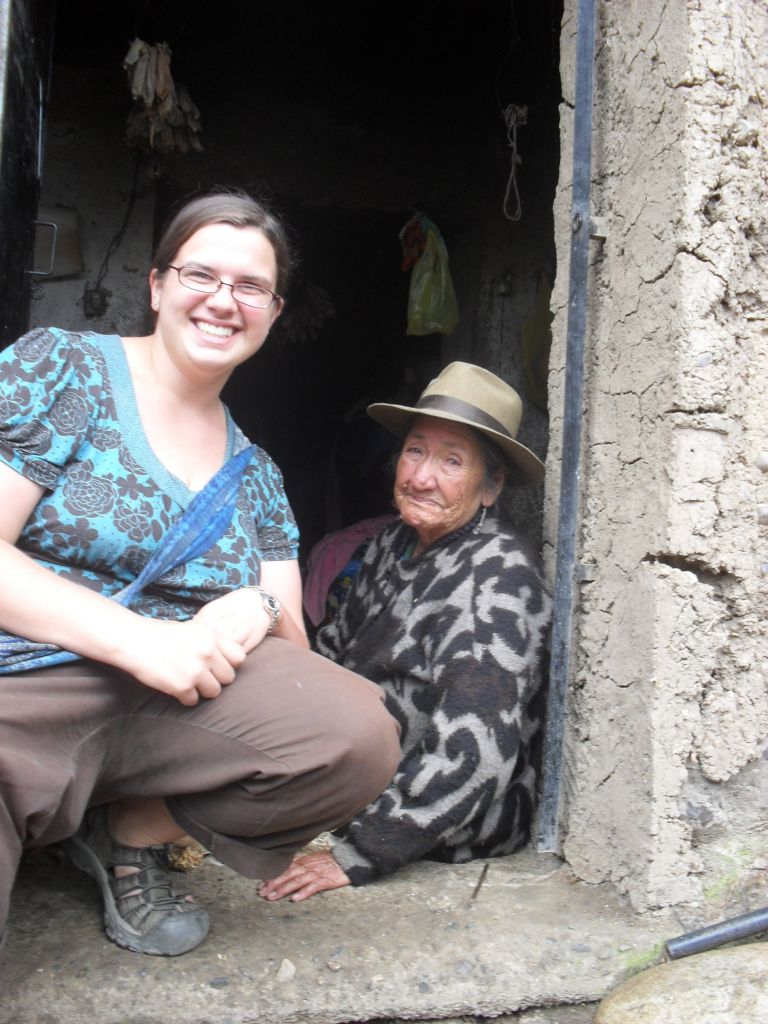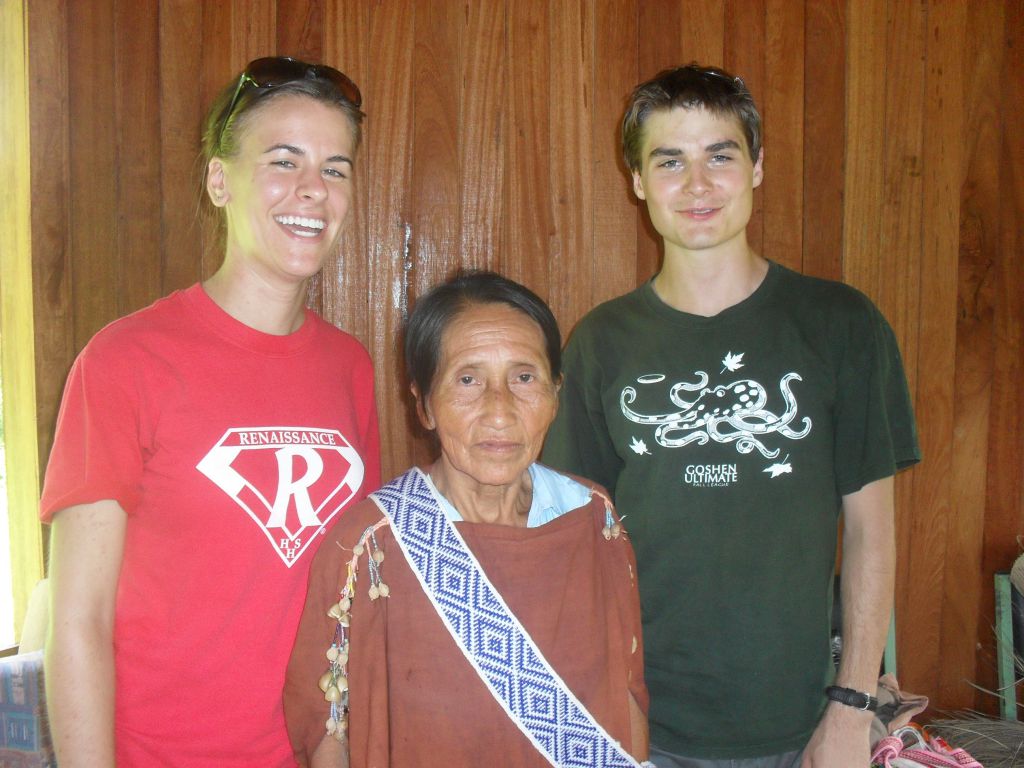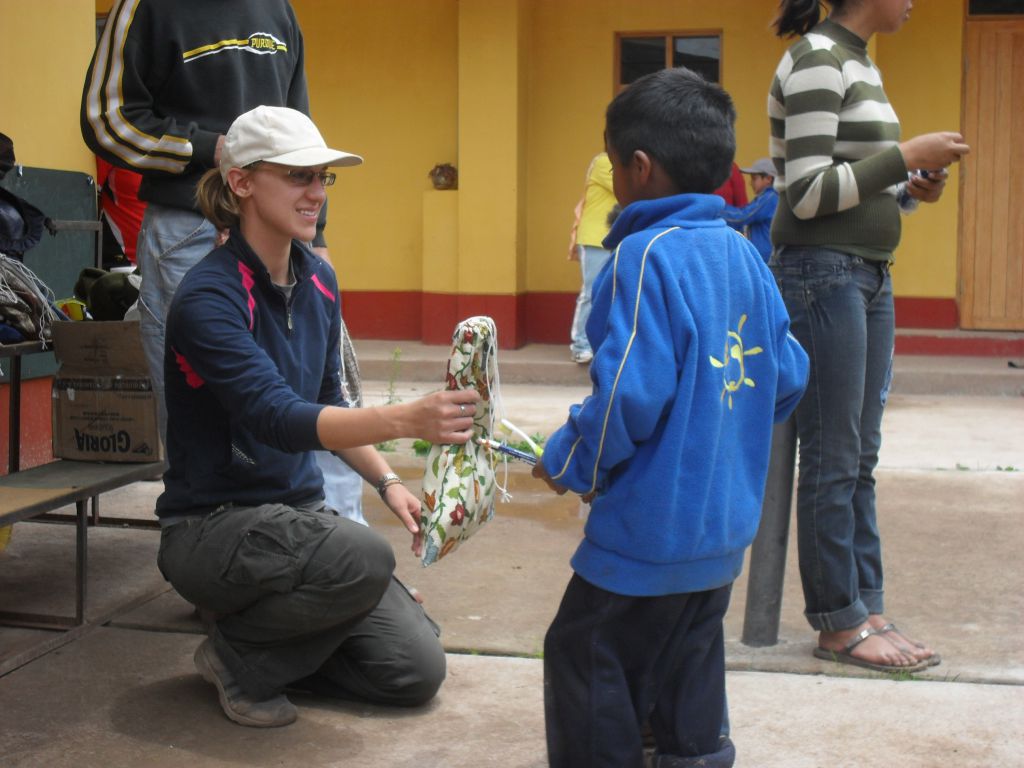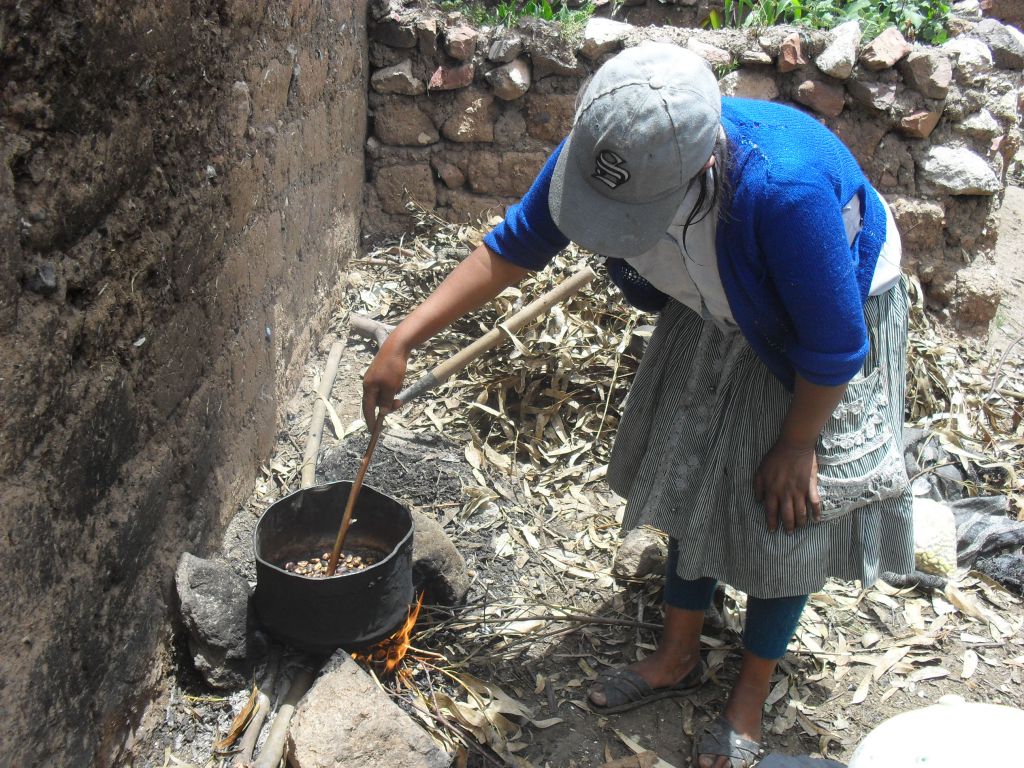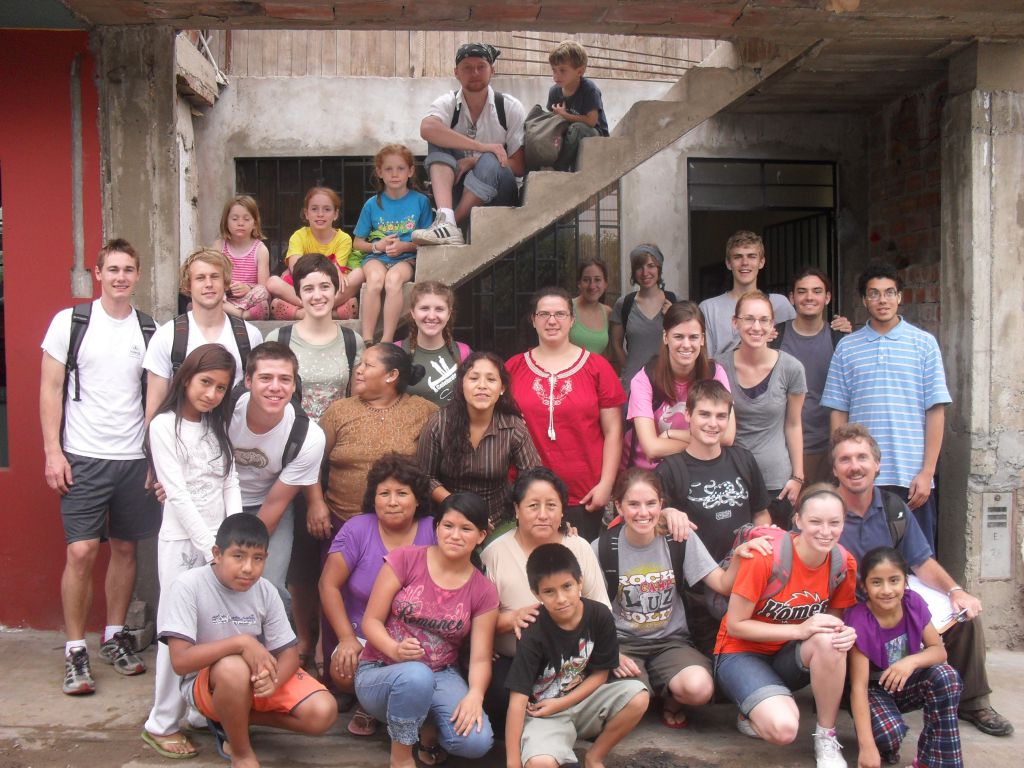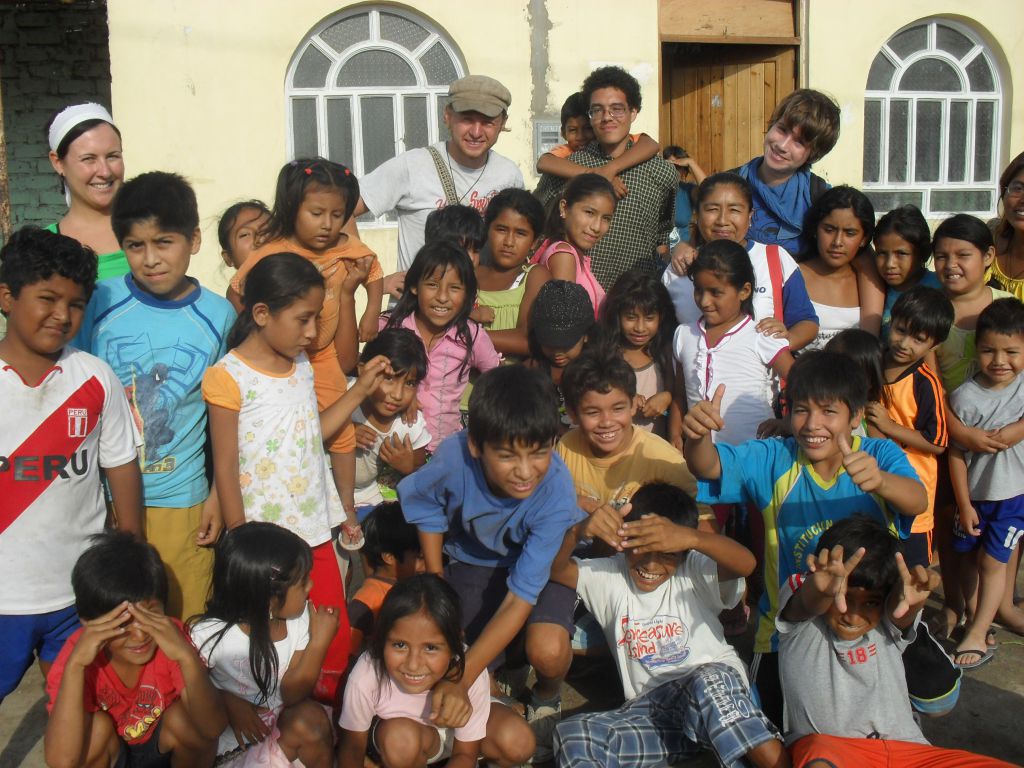
Serving in Chimbote
Outdoors at a gang-prevention program
Chimbote is famous, both among Peruvians and former SSTers. Peruvians think of the fish that are caught here, home to some of the best Ceviche on the coast. SSTers think of Father Jack, Sister Peggy, Charles, Jaime and the hundreds of other characters who perform good words and minor miracles at Our Lady of Perpetual Help Parish each day.
Sadly, the city still suffers from deep poverty caused in part by overfishing, this year's El Nino effect and the resulting decline of its principal industry. Seeking to avoid the smell that characterizes an aging fishing port, most of the wealthier residents have moved to nearby Nuevo Chimbote (New Chimbote). Those left behind try to eke out a life in the dusty streets and ramshackle buildings that comprise the older parts of the city. The children here are particularly vulnerable to hunger, disease, violence, chemical dependency and gang activity.
